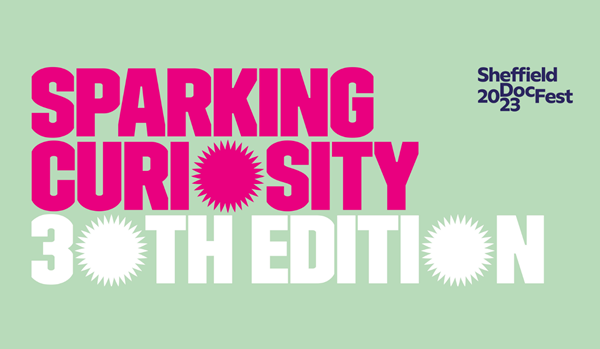
A northern UK city once made wealthy for its steel production, and made poor by the decline of that same industry, has had an amazing creative resurgence and is now home to one of the world’s most prestigious documentary film festivals.
This 10-day influx of producers, directors, commissioners and journalists from around the world to the working class city of Sheffield is both a learning experience for amateurs and a networking haven for professionals.
Sheffield DocFest is a place where world premieres happen, where controversial topics are tackled, and where immersive forms of filmmaking and viewing are available to delegates and audiences alike.
DocFest takes over event spaces, clubs, bars and – of course – cinemas in this fascinating city to bring a programme of international talent both behind and in front of the camera. This year marked the 30th anniversary of the festival, and here are just a few highlights that show the range and quality on offer every year.
In the Rearview
One country. One minibus. Many journeys. This fly-on-the-wall film captures Ukrainians as they are forced to leave their homes and drive into the unknown.
What does it look like to flee from a war? This gentle, yet painful, film explores the raw, human cost of conflict. Each new passenger, whether they’re women or men, young or old, individuals or families, has first-hand experience of the Russian invasion, and a spectrum of emotions surfaces in the car transporting them to safety.
Children quietly read books, a woman weeps for the cow she’s left behind, others are lost for words… Amidst this tragedy, the chaos of conflict and upended lives, there are fleeting moments of humor and hope.
And beyond the confines of the minibus, we witness the expanse of rural Ukraine – a vast landscape of natural beauty littered with the carnage of war, and the desolation and destruction of once populated communities.
If Only Night Wouldn’t Fall
A unique perspective on three Western countries’ attempts to grapple with anxiety, depression and psychosis. What links Norwegian primary school children, a meditation facilitator in a Florida town and a Dutch man struggling to avoid relapse into psychosis?
Marc Schmidt’s film follows case studies across three countries in order to explore the diagnosis and treatment of mental illness. The key lies in prevention rather than cure, with practitioners seeking workable solutions to anxiety, depression and psychosis.
Through a combination of interviews and the detailing of a variety of experiments, accompanied by a rich and immersive sound design, Schmidt’s cleverly constructed film presents an empathetic portrait of a universal problem, allowing us to reflect on how much we understand what goes on in our minds, and to witness the development of technology and practices aimed at helping us.
Is There Anybody Out There?
In this deeply personal and disarmingly honest documentary, filmmaker Ella Glendining searches for individuals with the same rare disability as herself.
Born with no hip joints and short femurs, a condition so rare that there is little reliable information about it, Ella Glendining decides to go in search of people who can share their experience and feelings about having a body like hers. In doing so, she challenges lazy ableist assumptions, experiences a number of unexpected surprises and encounters people who look like her.
With great warmth and an infectious joy for her body and life as it is, Glendining challenges us to question the way we see others, like and unlike ourselves. Is Anybody Out There? is a revelatory film that gently tugs at the viewer’s biases and looks to a day when inclusivity is no longer an ‘issue’ .
Maestra
A film about perseverance and breaking glass ceilings, five women prepare for and compete in an international competition for female conductors.
Maggie Contreras follows a group of entrants in the lead-up to the prestigious, bi-annual La Maestra competition, which takes place in Paris. Each entrant, distinct personalities who have had to face a variety of obstacles to reach this point, still face challenges in a world that has been unfairly dominated by men.
They have had to contend with conflict, the challenges of motherhood and family, and personal trauma. Surviving it all is their passion for and commitment to their craft, and a desire to succeed against all odds.
In addition to charting the women’s journey against the exciting and dramatic world of classical music, Contreas’ film is a celebration of female camaraderie in a creative landscape whose gender imbalance has long needed correcting.
White Nanny Black Child
A group of adults find solace in sharing their experiences of growing up as children of Black Nigerian immigrants who were fostered by white British families. Between 1955 and 1995, over 70,000 West African children were fostered by white Britons, in a practice known as ‘farming’ .
Many individuals then had to live, often in silence, with the long- lasting impact of this controversial official policy. Nine of those raised this way were invited to a workshop retreat, under professional guidance, to discuss their experiences.
Each take turns delving into their past, revealing the confusion and trauma of dealing with such change at a young age. For many, this marks the first time they have had the opportunity to connect with people who have shared a similar childhood.
White Nanny Black Child presents a personal, moving and sometimes unsettling meditation on identity, belonging and the nature of family.
